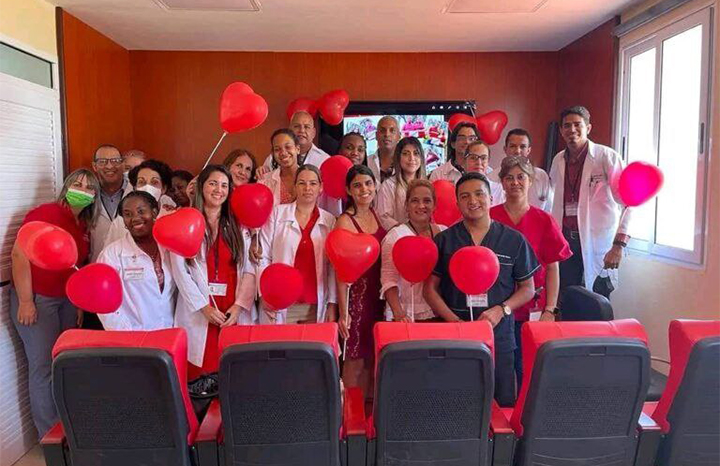 The provision of medical care to hemophiliacs is in the hands of health professionals at the Institute of Hematology and Immunology of Havana who are committed to the fight against this inherited genetic disorder that impairs the body’s ability to make blood clots.
The provision of medical care to hemophiliacs is in the hands of health professionals at the Institute of Hematology and Immunology of Havana who are committed to the fight against this inherited genetic disorder that impairs the body’s ability to make blood clots.
On the occasion of World Hemophilia Day today, Dr. Claudia Cabrera Morales, member of the National Program against Hemophilia and first-degree specialist in Hematology, remarked that the staff strives to go beyond diagnoses and therapies to assist patients from a medical, emotional and social viewpoint.
“Cuba’s medical protocol is on a par with those of developed nations, in spite of the economic and logistic limitations imposed by the intensification of the coercive U.S. Cuba policy”, she stressed, “which prevents access to equipment and supplies and therefore tampers with our diagnoses and personalized treatments”.
She highlighted the efforts of the Ministry of Public Health and the significant donations received from international organizations in terms of clotting factor concentrates and novel drugs, such as monoclonal antibodies.
“We have in place a multidisciplinary model based on provincial teams and consultations at the Institute by hematologists, orthopedists, physical therapists, psychologists, laboratory personnel, and nurses who provide full-fledged care services, as they both deal with acute cases and work on the patient’s rehabilitation and social reinsertion by reducing the disabling impact of the disease”, she explained.
“This assistance,” she added, “should be a joint effort by family members, educators and coworkers to establish support networks that make it possible to improve the hemophiliac’s quality of life”.